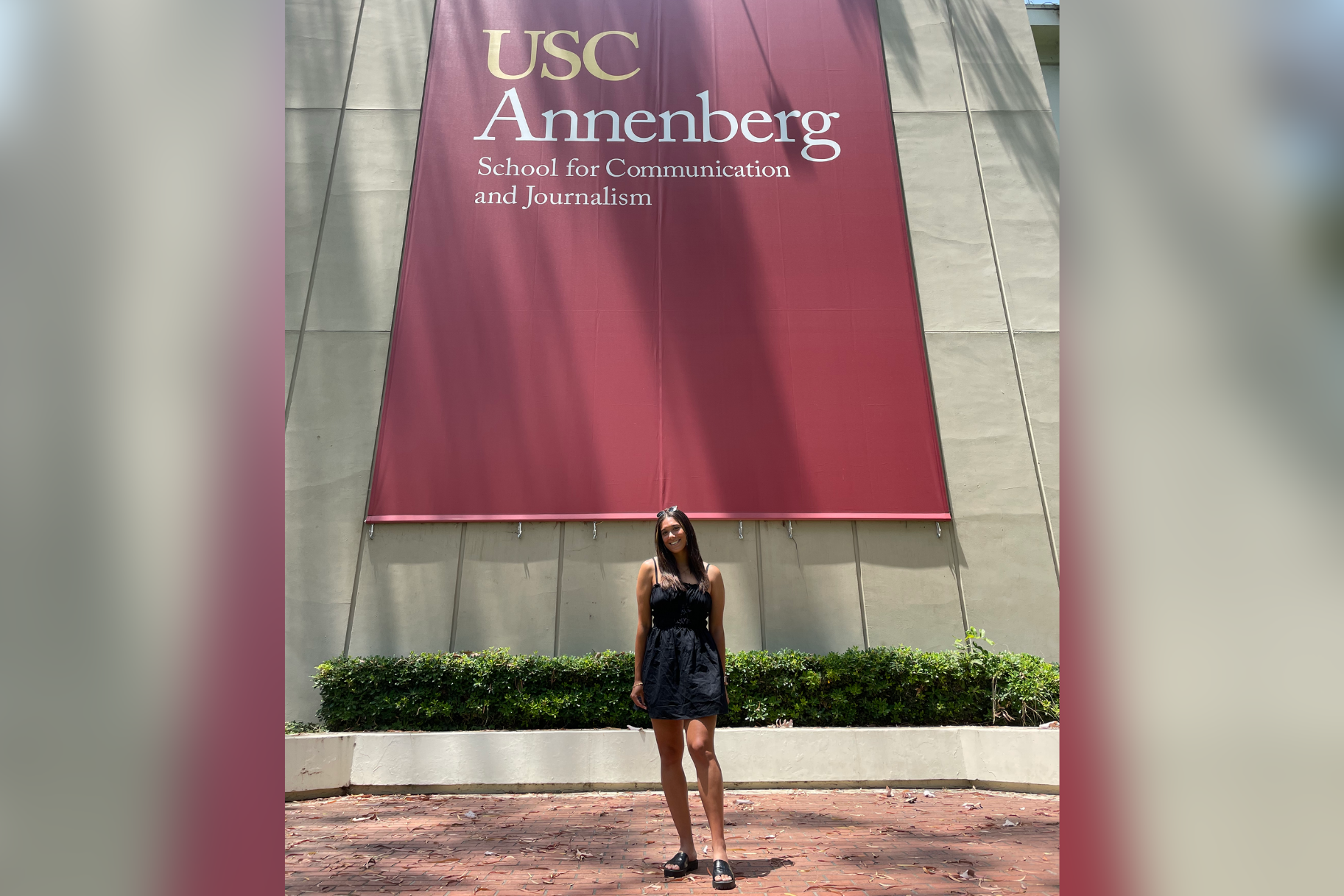As the member communications manager for YouTube TV, Kristina Thomas is more than familiar with how to champion for users’ needs and foster a positive, responsive environment for subscribers.
“It’s all about building this digital community,” she said. “I’m really advocating for our members, speaking on their behalf, delivering the content that they want to see and striving for retention.”
Although Thomas has been excelling in her position for almost two years now, the former social media consultant knew that attending graduate school was a crucial next step to becoming a thought leader in the digital media industry.
Through the online Master of Science in Digital Media Management (MSDMM) program, Thomas is learning how to be at the forefront of digital innovation.
Her interest in USC Annenberg School of Communication and Journalism was sparked after reading about the MSDMM learning outcomes and its emphasis on leadership principles, which then solidified her decision to apply to the program.
“Along with the outstanding reputation both USC and Annenberg have,” Thomas added.
Launched in fall 2021, the online MS in Digital Media Management prepares students to tackle the ever-changing world of media using transparent, data-driven decisions. In addition to honing their leadership and entrepreneurial skills, graduates of the two-year program will be equipped to lead diverse teams and create engaging content, technologies and initiatives for the global marketplace.
“The digital media landscape is constantly evolving, and so I really want to be on top of that knowledge and learn to identify opportunities for innovation and help influence the future of organizations,” Thomas said of her motivation to enroll in the MSDMM. “I’m also just looking to create these lasting connections with other students in the field and broaden my network[.]”
With online classes, Thomas is able to earn her master’s remotely from San Diego, but that hasn’t hindered her from fully immersing herself in the Trojan Family: She highlighted USC’s sense of community as another draw of the MSDMM.
“I was a little nervous about the online aspect of the program since it has been a while since I have taken an online course, but I enjoy the flexibility it offers … I’ve made wonderful connections with my fellow classmates. We have a few group chats going where we further discuss our learnings from the program. If anyone has any questions about anything, we have a space where we can connect and work together when needed,” she said.
Thomas is only a few months into the program, but she has already felt the coursework’s effect on her position at YouTube TV, where she collaborates with various partners such as Fox and NBC to promote streaming for live TV, on-demand video and cloud-based DVR.
“I’ve been able to take what I’ve learned each week and communicate that in my work and everyday environment. I’m able to have these meaningful discussions with my colleagues,” she said.
Two focus areas from the MSDMM that Thomas has been able to infuse into her work are mitigating technology bias and ethical missteps.
“This is something I was not actively thinking about before the course, but now with this knowledge, I have been much more diligent about identifying areas of improvement within my own work,” she noted.

While Thomas is thrilled with her current role — carving out her own space in the media world and keeping a finger on the pulse of streaming platform evolution — she does have goals to assume a leadership position, possibly even launching her own business.
In the more immediate future, however, Thomas hopes to evolve into a mentor and influential voice in the field, particularly when it comes to diversity, equity and inclusion (DEI).
“I believe a huge challenge in digital media is addressing and implementing diversity, inclusion, equity … [We must] address racial injustice and systemic inequity both within and outside of the workplace,” Thomas stated.
Another sector of digital media that both excites and worries her is technology, which is rapidly changing the way we connect and interface. Digital networks have allowed users to forge relationships and form communities with people they otherwise would not have had the opportunity to meet, but challenges including algorithmic bias and data privacy continue to pose a threat to the system.
From the Facebook–Cambridge Analytica data scandal in 2016 to the more recent riots at Capitol Hill, it’s clear that digital media has an incredible influence on both our society and the world around us. While companies are still debating how to navigate issues such as misinformation, false news and privacy concerns, leaders have been tasked to take accountability and pursue inventive solutions to ethical challenges.
Moving forward, it is paramount to not only regulate organizations, but also educate ourselves on digital citizenship and media ethics, according to Thomas.
“It’s important to hold the organizations who created these systems accountable. But I also think it’s something that we can invest in our government, in our education system. I think we need to learn about what is ethical, what’s not,” she said.
For those looking to understand the value of studying digital media — or even those interested in pursuing the MSDMM degree themselves — Thomas circled back to the industry’s pervasion and impact on our day-to-day lives.
“We’re constantly consuming all of this content online … and it’s important to understand the power that people and organizations hold,” she concluded. “The [MSDMM] courses not only offer a good foundational overview, but they also discuss what is currently happening and what to expect in the future of media. This knowledge is super helpful at any stage in one’s career.”
Learn more about the online MS in Digital Media Management program today.


